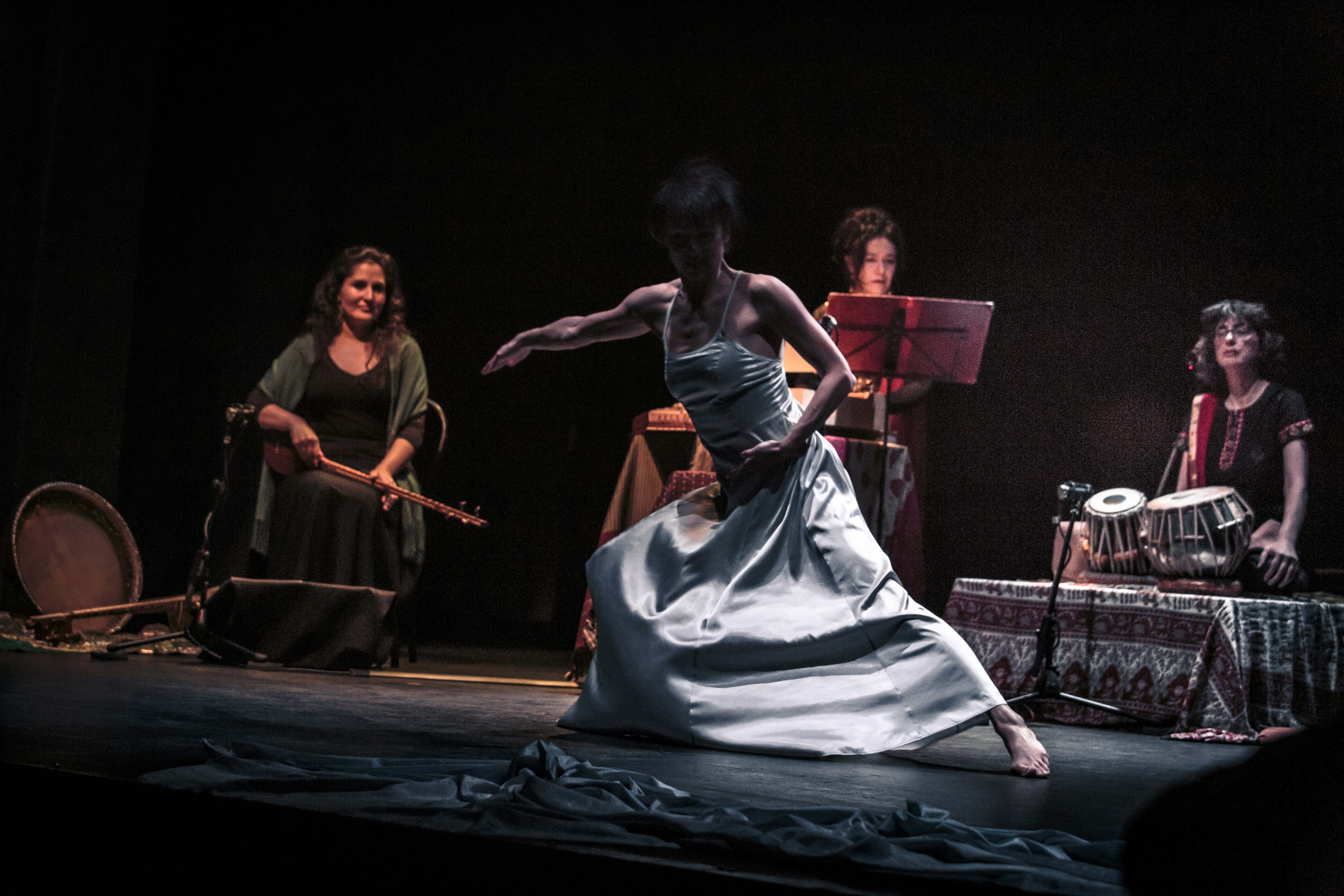
Shadi Fathi, setâr, târ, daf
Paola Erdas, clavisymbalum, salterio
Elena Baldassarri, tabla
Daša Grgič, danza
musiche: Tradizionale persiano, Faenza Codex, Robertsbridge Codex
“Ma il re Sciahriar continuò a render giustizia, a distribuire gli impieghi agli uni, e a destituire gli altri, e ciò fino alla fine della giornata. E il Vizir rimase perplesso ed infinitamente meravigliato. Quando il Diwan fu terminato il re Sciahriar ritornò al suo palazzo” [da Mille notti e una Notte, prologo alla Seconda Notte].
Raccolta di poesie, raduno amministrativo e elemento d’arredo, il Diwan è anche il luogo privato, riservato allo scambio, dove musicisti e poeti esprimono in libertà la loro ispirazione.
In questo Diwan immaginario tre musiciste e una danzatrice si incontrano nel fluire di un dialogo musicale che passa dal suono al movimento e dalla melodia al puro ritmo. In scena, senza pregiudiziali barriere, molte delle vie possibili ispirate dall’antica musa si intersecano e si sovrappongono creando la meraviglia della comunicazione.
“The King issued his orders, and promoted this and deposed that, until the end of the day; and he told the Wazir no whit of what had happened. But the Minister wondered thereat with exceeding wonder; and when the Diwan broke up King Shahryar entered his palace” [from One Thousand and One Nights, Second’s night prologue].
The word Diwan has a lot of meanings: court of justice, poetry collection, piece of furniture. But also a private, special place in which musicians and poets exchange their ideas, in which they can be free to express their artistic inspiration.
In this imagery Diwan, three female musicians and one female dancer are meeting in an artistic dialogue, passing from music to dance, from melody to pure rithm. On stage, without any prejudice or barrier, many ways inspired by the Ancien Muse are interwoven and overlap creating a wonderful communication.